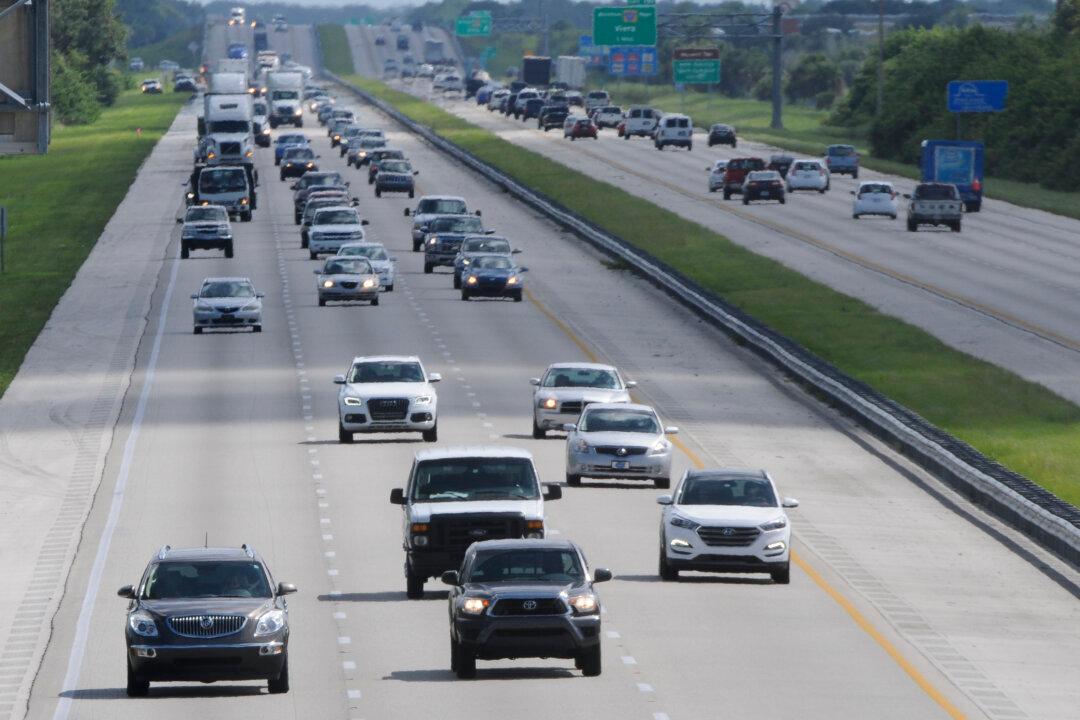Florida Gov. Ron DeSantis announced a $7 billion initiative on Jan. 30 to speed up 20 infrastructure projects over the next four years to accommodate the growing number of people who rely on the state’s roadways.
Speaking at a Florida Department of Transportation (FDOT) office in Auburndale, DeSantis said the Moving Florida Forward plan would accelerate projects across the state and “bring them to completion more than a decade ahead of schedule.”





